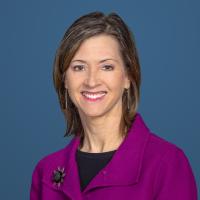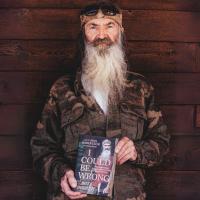3 Words to Creating Dynamic Relationship and Career Success
WHY AN ENTIRE BOOK ABOUT THREE WORDS?
“I don’t think we’re as good at them as we should be,” Mark Batterson responds. He then steps back to look at the big picture of the power of the spoken word as a whole. “As King Solomon said, ‘Death and life are in the power of the tongue,’” (Proverbs 18:21). Applying that notion to our lives here and now, Mark says, “If you want to change your life, you have to change your words! If you want to change your relationships, you have to change your words. Our words don’t represent the world objectively. Rather, our words create the world subjectively! For better or worse, our words can function as self-fulfilling prophecies. They have the power to bless or to curse, to heal or to hurt, to give life or to cause death.”
Offering an example from his own life, Mark confesses that the political polarization of recent years took a toll on his life and leadership. He says it felt like no matter what anyone says, it’s never enough and it’s always too much at the same time. “Positivity is one of my strengths, but I recently found myself in a funk.” His journal was filled with phrases like, “I’m so spent… It feels like I’m running on empty… I’m just not bouncing back … My head is foggy … My heart is irritated … Lord, help me.”
He did indeed help Mark, and showed him how his negative words were becoming self-fulfilling. “By emphasizing how hard leadership was during that season, I was making it harder than it had to be! If you want to change your attitude, you have to change your words.”
When asked why he chose to focus an entire book on the words please, sorry, and thanks, the basic manners most people learn as children, Mark says, “If we are good at those three things, it solves a hundred other problems.” He points out that it’s not merely the use of the three words that makes the difference, but the intention of our hearts. “It’s only as effective as your motivation; if we’re not sincere, it will backfire. People can see through smokescreens. It has to be honoring and respectful, treating others as image-bearers of God.”
Mark goes on to explain that even those who are very accomplished in their education or careers will be propelled forward or limited by how they use these words. “Your degree isn’t what will earn you promotions. Lots of people have PhDs. The best predictor of success in life, in love, and in leadership is your proficiency at please, sorry, and thanks.”
THE PSYCHOLOGY OF “PLEASE”
Mark did his homework and found that the reason the word please makes such a difference is rooted in psychology. “Please adds respect and urgency to a request. It’s asking instead of demanding, but it’s only as effective as it is authentic. If you try to use the word to manipulate, it will have the opposite effect. The word please demonstrates a posture of humility, and no one did it better than Jesus.” He points out that Jesus emptied Himself for others and we are called to do the same. “Please is setting aside your preferences. Please is giving others the upper hand. Please is putting the ball in someone else’s court. Please is honoring others above yourself.” To sum it all up, Mark says, “The psychology of please isn’t rocket science. It’s as simple as the Golden Rule: “Treat people the same way you want them to treat you.” And it starts with please!
THE SCIENCE OF “SORRY”
When it comes to saying, “I’m sorry,” Mark admits that it’s hard to do. “We don’t like admitting that we’re wrong. But if we don’t own our mistakes, they’ll own us. Every apology begins with empathy. It’s a heart that breaks for the things that break the heart of God.” Included in the “science of sorry,” as Mark puts it, is what he believes to be the only right response to a genuine apology – forgiveness. “Forgiven people forgive people, seventy times seven. We show God’s amazing grace to others. And forgiving others sets us free. ‘When we forgive,' said Lewis Smedes, ‘we set a prisoner free and then discover that the prisoner we set free was us.’”
Mark gives this example of an apology and forgiveness from his own life: “In one season of life and ministry, I was so pressed by my responsibilities as a pastor that a few priorities got out of whack. I’m embarrassed to admit this, but I was too busy to be bothered by family problems. That caused a deep wound for Lora (his wife). During a day of prayer many years later, the Holy Spirit surfaced that moment, that memory. With tears in her eyes, Lora said, “I forgive you.” Lora needed to say it, and I needed to hear it. It didn’t change the mistakes I’d made, but it brought tremendous healing. And, I might add, a renewed resolve to be fully present.”
THE THEOLOGY OF “THANKS”
“The theology of thanks begins with gratitude,” Mark explains. “Gratitude is giving credit where credit is due. It’s a fundamental recognition that every good and perfect gift comes from God.” He says he knows people who say they’ve never seen a miracle, and gives several examples from the design of the human body that can be called precisely that. “With every heartbeat, six quarts of blood course their way through sixty thousand miles of veins, arteries, and capillaries. And don’t forget DNA. If your genetic code, which is absolutely unique, were stretched end to end, it would measure twice the diameter of the solar system.” Then he poses the questions, “Are you taking things for granted? Or are you taking things with gratitude?”
“Many years ago,” Mark says, “I had dinner with former NFL MVP, Brett Favre. He was awfully down to earth, so I wasn’t surprised by his Hall of Fame speech. He spoke for a record thirty-six minutes, and by my count, he said thanks no less than thirty-five times! He thanked his family. He thanked his coaches and teammates. He thanked the fans. He thanked the coach who recruited him in college. He even thanked the best man in his wedding! Mark then applies that example to us. “Who has left their fingerprints on your soul? Who believed in you when nobody else did? Who was there through thick and thin? Make a list. Track them down, if you can. And say thanks!
EASTER SERVICE AT THE LINCOLN MEMORIAL
There has been an Easter sunrise service at the Lincoln Memorial in Washington, DC for 42 years, hosted by Capitol Church and led by Pastor Amos Dodge. In 2022, the church asked National Community Church to host it, and Mark to lead the service, and they happily agreed. This year, they’ll do the same from the steps of the famed memorial and invite any and all to join them!
MORE ABOUT MARK
Born in Minneapolis, Mark grew up in Naperville, Illinois. He was just five years old when his parents took him to see a movie made through Billy Graham’s ministry, called The Hiding Place. The film significantly influenced Mark and he gave his life to God. When he turned 19 years old, he realized that he had been asking Jesus to follow him instead of him following Jesus.
Mark went to the University of Chicago on scholarship, playing basketball and majoring in pre-law. After a prayer walk through a cow pasture, he felt called to full-time ministry and ended up at Central Bible College in Springfield, Missouri. Mark also holds a doctor of ministry degree from Regent University. He is the author of 23 books including his first published title, In a Pit with a Lion on a Snowy Day and The Circle Maker, a New York Times Bestseller.
The Battersons moved to Washington, D.C. in 1994 to direct an inner-city ministry. He has served as Lead Pastor of National Community Church since 1996. Under his leadership, NCC has grown from a core group of 19 people to one church with seven locations.




